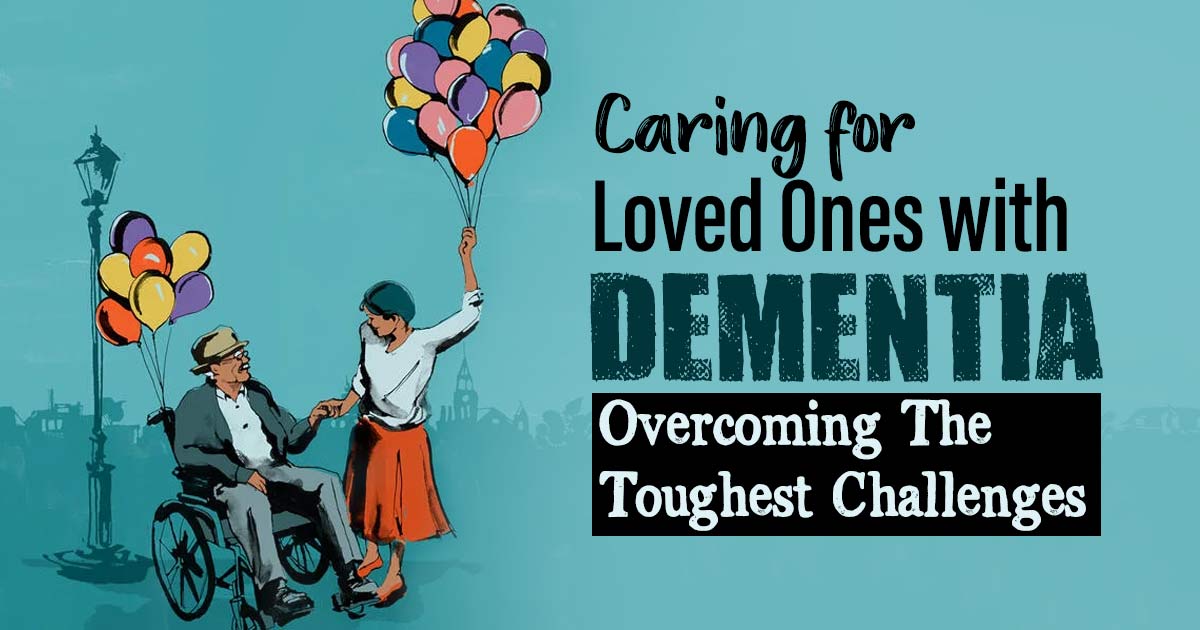Dementia is a complex and progressive neurodegenerative condition that affects millions of people worldwide. Challenges in dementia caregiving, undertaken by family members, professional caregivers, or healthcare providers, pose obstacles to the daunting task of caregiving in a debilitating mental health disorder.
1. Emotional And Psychological Impact
The emotional and psychological toll on dementia caregivers is perhaps one of the most profound challenges. Witnessing a loved one’s decline in cognitive abilities and personality can lead to feelings of grief, helplessness, and depression. The continuous stress of dealing with challenging behaviors like aggression and wandering, coupled with the constant need for vigilance, can cause anxiety and emotional exhaustion.
2. Physical Demands Pose Challenges In Dementia Caregiving
Caring for someone with dementia often entails significant physical demands. As the condition progresses, individuals may lose their ability to perform even basic activities of daily living, such as bathing, dressing, and eating. Caregivers must assist with these tasks, often leading to physical strain and injuries. The requirement for constant supervision and assistance can result in sleep deprivation and exhaustion, further exacerbating the physical toll on caregivers.
3. Financial Strain In Dementia Caregiving
Challenges in dementia caregiving can impose a significant financial burden. Medical expenses, home modifications to enhance safety, and the potential need for professional in-home care services or nursing homes can deplete savings and assets. Caregivers may need to reduce their work hours or leave their jobs entirely to provide full-time care, impacting their income and long-term financial security.
4. Social Isolation In Dementia Caregiving
The demanding nature of dementia caregiving can lead to social isolation. Caregivers often find it challenging to maintain their social lives and relationships due to their caregiving responsibilities. The emotional strain can cause them to withdraw from friends and family, leading to feelings of loneliness and disconnection.
5. Lack Of Support And Resources
Caregivers frequently face obstacles in accessing adequate support and resources. The healthcare system may not provide sufficient guidance or education on dementia caregiving. Finding trustworthy respite care, support groups, or community services can be a struggle. The lack of assistance and resources can leave caregivers feeling overwhelmed and ill-equipped to handle the demands of their role.
6. Challenging Behaviors In Sufferers
Dementia often brings about challenging behaviors, including agitation, aggression, paranoia, and hallucinations. Caregivers must develop strategies to manage these behaviors while maintaining the dignity and well-being of their loved ones. This constant need for problem-solving and adaptation can be exhausting and emotionally draining.
7. Communication Difficulties
As dementia progresses, communication becomes increasingly difficult. Caregivers must learn to navigate the challenges of effective communication, which can include dealing with repetitive questions, fragmented speech, or even a complete loss of language. The frustration and sense of powerlessness in communication breakdowns can be profoundly disheartening.
8. Balancing Caregiving With Personal Life:
Dementia caregiving often forces caregivers to strike a delicate balance between their caregiving responsibilities and their personal lives. Juggling work, family, and caregiving can be immensely challenging. The guilt of not being able to give equal attention to all aspects of life can add to the emotional strain.
9. Progressive Nature Of Dementia
Dementia is a progressive condition, which means that the challenges caregivers face will intensify over time. As cognitive abilities continue to decline, the caregiving demands grow more complex and demanding. This unrelenting nature of dementia caregiving can be overwhelming.
10. Guilt And Grief
Caregivers frequently experience feelings of guilt and grief. They may grieve the loss of the person their loved one once was and grapple with the guilt of not being able to provide the best possible care. These emotions can further contribute to the emotional burden of caregiving.
11. Ethical Dilemmas
Dementia caregiving often presents caregivers with ethical dilemmas. Decisions related to the use of restraints, medications, or end-of-life care can be morally complex. Navigating these dilemmas can cause additional stress and emotional turmoil for caregivers.
12. Stigma And Misunderstanding
There is a prevailing stigma surrounding dementia, and this can extend to caregivers. Friends, family, or even healthcare professionals may not fully understand the challenges faced by dementia caregivers. This lack of understanding can lead to feelings of isolation and frustration.
Dementia caregiving is a demanding and emotionally taxing journey fraught with numerous challenges. The impact of caregiving extends beyond the immediate well-being of the person with dementia; it deeply affects the caregivers themselves. Acknowledging and addressing these challenges is essential for providing comprehensive support for both individuals with dementia and their caregivers.
Improving access to education, resources, and respite care, as well as reducing the stigma surrounding dementia, are crucial steps in mitigating the challenges in dementia caregiving. Additionally, fostering a more compassionate and supportive community for dementia caregivers is vital to ensure their well-being and the quality of care provided to those affected by this devastating condition.




























